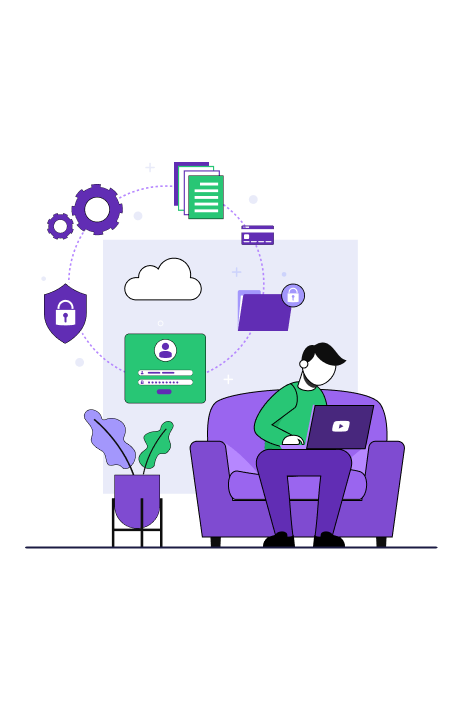
Navigating privacy settings and account security for content creators
As a content creator, you put a lot of effort into crafting your work and building your brand online. However, with the rise of social media and digital platforms, it’s also essential to be mindful of privacy and security concerns. From protecting your personal information to safeguarding your intellectual property, taking steps to secure your online presence can help you maintain control over your content and reputation.
To help you navigate the sometimes complicated world of privacy settings and account security, here are some tips to consider as a content creator. By following these suggestions, you can better safeguard your online presence and protect your creative work.
- Use strong and unique passwords: It’s imperative to use strong and unique passwords for all your accounts, and avoid using the same password across multiple accounts. Consider using a password manager to generate and store strong passwords securely.
- Enable two-factor authentication: Two-factor authentication provides an additional layer of security to your accounts by requiring a second form of authentication, such as a code sent to your phone or email, along with your password.
- Adjust privacy settings: Tweak your privacy settings on social media platforms to limit the amount of personal information shared publicly. Consider limiting who can view your posts, photos, and personal information.
- Avoid suspicious links and downloads: Refrain clicking on suspicious links or downloading files from untrusted sources. These links and downloads could potentially contain malware that can compromise the security of your device and personal information.
- Seek support if you experience harassment: If you experience online harassment, seek support from friends, family, and mental health professionals. You can also report the harassment to the relevant platform, and consider seeking legal action if the harassment persists.
- Monitor your online activity: Regularly monitor your online activity and check for any unusual activity or posts that you did not create. This will help you identify potential security breaches or unauthorized access to your accounts.
- Protect your intellectual property: Use watermarks or copyright notice to protect your intellectual property and prevent unauthorized use of your work. Consider registering your work with the copyright office to establish legal ownership.
The importance of privacy and security for content creators online
For content creators, privacy and security are essential to ensure their safety, protect their intellectual property, and maintain their online reputation. Here are some reasons why privacy and security are important for content creators:
- Protecting personal information: It’s nothing unusual for content creators to share personal information like their name, location or contact. But what’s important is to ensure that this information is not readily accessible to anyone who may misuse or threaten the content creator’s safety.
- Safeguarding intellectual property: Content creators may produce original work such as art, writing, or music that is subject to copyright laws. It is essential to protect this work from theft or unauthorized use to maintain ownership and control over the work.
- Maintaining online reputation: Content creators may build a reputation online based on their work, engagement with followers, and interactions with other creators. It is essential to protect this reputation by avoiding controversy, engaging in ethical behavior, and addressing any negative comments or feedback.
- Avoiding harassment and cyberbullying: Content creators are often the prime targets of harassment, cyberbullying, or other forms of online abuse. It is important to protect privacy and security to avoid being targeted or becoming a victim of such abuse that can later be hazardous to their mental health.
Tips for managing privacy settings on social media and other platforms
Managing privacy settings on social media and other platforms is crucial for protecting personal information and maintaining online privacy. Here are some tips for managing privacy settings on social media and other platforms:
- Limit friend requests: Only accept friend requests from people you know and trust. Avoid accepting friend requests from strangers or suspicious accounts.
- Be mindful of what you post: It’s important to be careful about what you post on social media and other platforms, and consider how it may be perceived by others. Avoid posting sensitive or personal information that could be used to identify you or harm your reputation.
- Opt for private messaging: Opt for private messaging on social media and other platforms to communicate with friends and family, instead of posting publicly. Private messaging is more secure and less likely to be seen by unauthorized individuals.
- Stay up-to-date with privacy policies: Stay informed about changes to privacy policies on social media and other platforms. Review the policies regularly to ensure that your information is being used appropriately and that you are comfortable with the terms.
Conclusion
Protecting your personal information and account security as a content creator is crucial to maintain a positive online presence and protect your financial and personal security. As a content creator, your online presence is your brand, and it’s essential to safeguard it against hackers, cyberstalkers, and other online threats.